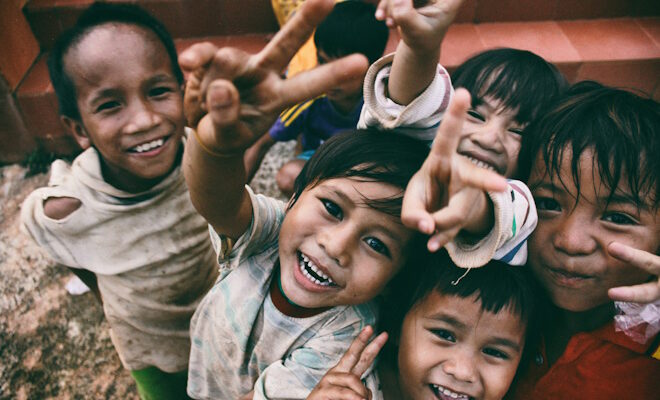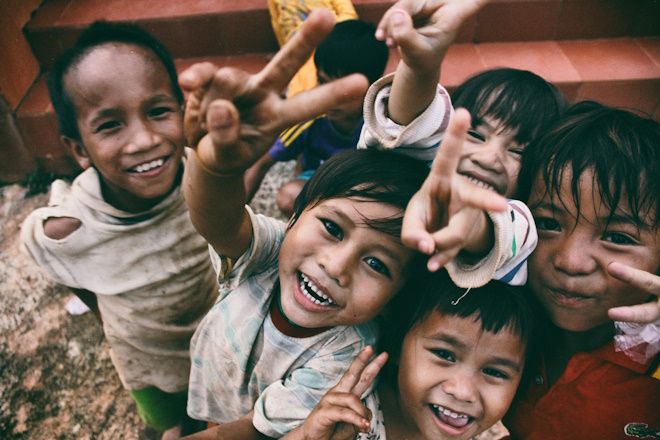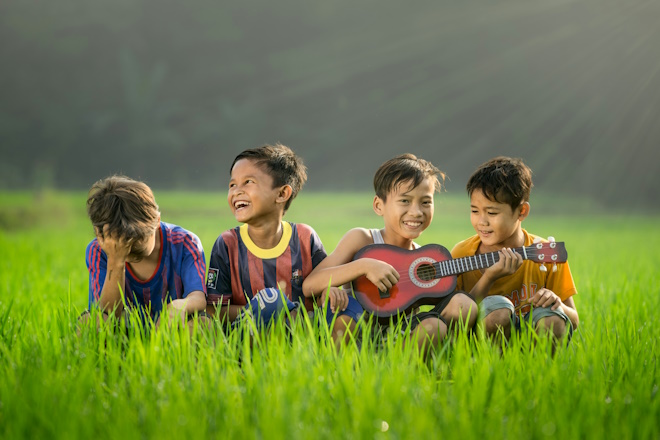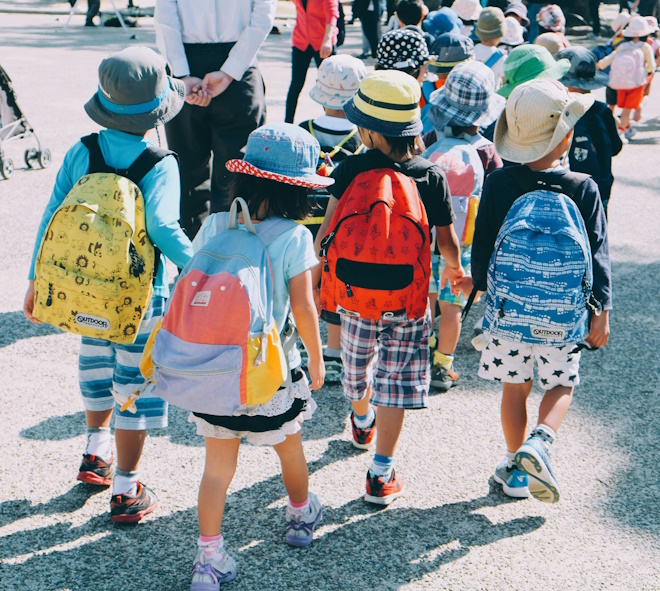
The Gen XY Lifestyle
Young children today will have to face climate change in their tomorrows
According to Save the Children, newborns across the globe will on average live through 2.6 times more droughts, 2.8 times as many river floods, almost three times as many crop failures, and twice the number of wildfires as people born 60 years ago if emissions were to follow the original Paris Agreement pledges.
Dr Yousef Alhammadi, Executive Director of The Abu Dhabi Early Childhood Authority (ECA) believes that early childhood development (ECD) can have a direct impact on climate change.
ECD can help ensure the younger generations’ future is safe and children will grow up to make a positive impact on the planet.

We had a discussion with Dr Yousef about COP28, climate change, environmental consciousness, and early childhood.
the Active Age (AA): What is the connection between climate change, environmental consciousness, and early childhood?
Dr Yousef Alhammadi (YA): Young children are more vulnerable to the impacts of climate change, making the link between climate change and early childhood development (ECD) significant.
Extreme weather events such as heatwaves, floods, droughts, and storms disproportionately impact child health and development. Children are more vulnerable to dehydration, disease, and toxic exposures due to their limited capacity to regulate temperature.
In Africa, Children in 48 out of 49 African countries assessed were found to be at high or extremely high risk of the impacts of climate change, based on their exposure and vulnerability to cyclones, heatwaves, and other climate and environmental shocks, and access to essential services. In South Asia, 76 percent of children are exposed to soaring temperatures, and 600 million are highly vulnerable to vector-borne diseases and alarming levels of air pollution.
According to projections, the percentage of the world’s population exposed to fatal heat stress is expected to rise from 30% to at least 48 percent and as high as 76 percent by the end of this century. This will also result in reduced opportunities for children to spend quality time outdoors, which could affect their physical and social development.
It is of utmost importance to instill environmental consciousness in young children. This is not only because they will be directly impacted in the short term but also because they will be the ones to face this ever-growing problem in their adulthood.
The sooner the next generation becomes aware of this issue, the better equipped they will be to find innovative solutions for a sustainable future. Let us take action now to ensure a better tomorrow for our planet and future generations.
AA: What are your thoughts about COP28?
YA: COP28 was an important event that brought together world leaders and decision-makers to address environmental and sustainability challenges. Last year’s event is particularly significant as early childhood development has been included as a focus area for the first time in its history.
This event is exciting as we will play a crucial role in highlighting the importance of early years in advancing sustainability.
The expert-led discussions will explore different facets of early childhood and sustainability, such as how climate change is currently changing the health systems, the landscape of early education, and the development of young children under the present circumstances. Larger societal questions relating to climate change have been discussed.
For example, the psychological impact on children and mothers and the broader impact on mental health and societal equity. Another relevant discussion will be the role of urban planning and the need to design learning spaces that can withstand climate threats and nurture the well-being and development of young children.

AA: From your perspective as an expert in early childhood development, what is your biggest hope that COP28 will bring to the table?
YA: I hope there will be a greater recognition of the crucial role of Early Childhood Development (ECD) in achieving global sustainability. As I have previously mentioned, climate change-induced threats can have a significant impact on the psychological, social, and physical development of children.
It is important to remember that young children are future policymakers, so they must be provided with the necessary resources to develop healthily and receive the proper education that will enable them to lead an eco-friendly lifestyle now and provide innovative solutions in the future. If this approach is adopted on a large scale, the planet will benefit significantly.
Investment is necessary for any cause, and the same goes for crucial ECD-sustainability issues. As awareness grows, new investments will be made to increase green education and build resilient, eco-friendly schools. Such investments will empower young children to develop resilience and thrive in the face of climate disruption, ensuring a positive present and future for them and their families.
AA: How can we bring about change in children, starting from early childhood?
YA: First and foremost, children must be given the resources that enable them to develop holistically and thrive. They must have a stimulating, nurturing, and supportive environment to ensure their healthy development and cognitive abilities. As discussed, investment is required to tackle climate-induced dangers threatening these environments.
Environmental education is crucial, especially within families, where the most fundamental education occurs. Young children must become conscious of living sustainably, whether learning what to put in the recycling bin or the importance of turning off taps and light switches when not using them.
Entity-funded child and family programs should enhance this education.
The Abu Dhabi Early Childhood Authority (ECA) is committed to involving children in our key initiatives, such as the World Early Childhood Development (WED) Movement. This glocal platform brings experts and practitioners together to discuss futuristic challenges and develop innovative solutions.
We launched the WED Movement during COP 28, focusing on three key areas: Sustainable and Family-Friendly Cities, Intentional Parenting, and Culture and Identity.
Our youngest partners, the children, asked the esteemed panel important questions and shared their views on making Abu Dhabi sustainable and eco-friendly. We aim to implement pilots in Abu Dhabi based on the solutions developed through the WED Movement to showcase its possibility and encourage other regions and countries to use these.
Another way to drive change is through policy. Since early childhood and family lifestyle significantly impact the promotion of sustainability, policymakers should collaborate with families to create the most efficient policies.
At ECA, we assist in developing crucial policies by working with our primary audiences – children, families, and caregivers – to ensure that they are comprehensive and easy to implement.

AA: What are the top 3 things parents and educators must do to nurture the next generation of children who will have to bear the consequences of climate change in their lifetime?
YA: Parents and educators must have the necessary knowledge to prepare the next generation for the future. They should have a basic understanding of the behaviors that can harm the environment and how they can contribute to problems such as global warming and flooding.
Parents and educators need to lead by example and make eco-friendly choices in their daily lives. Children are highly observant and tend to imitate the actions of adults. Therefore, if parents teach their children to live sustainably but refrain from practising what they preach, it can lead to confusion or a belief that sustainable living is not necessary or achievable. As the saying goes, actions speak louder than words.
After taking the initial steps, the final stage is to educate the child about the environment and encourage them to make a positive impact. The learning process should be engaging and can be done in collaboration with technology or an organisation. This will help make the educational experience more impactful and inspire a sense of responsibility towards the planet’s wellbeing.
Photo by Larm Rmah, by Robert Collins and by note thanun on Unsplash






